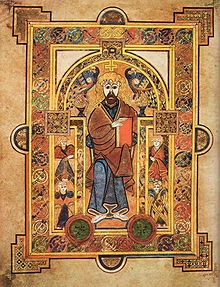James Joyce’s Ulysses is one of the greatest novels of the twentieth century. But as well as a good read, it also offers fun tips for invigorating walks, songs to sing, other books to seek out; and even some tasty food. Well, sort of… by Martin Monahan
Today is Bloomsday. The annual celebration of James Joyce’s Ulysses. Around the globe you can stumble on events from New York to York which circulate back to the book’s own Edenville: Dublin on the 16th of June 1904. This is the setting for the activities of Leopold Bloom, the wandering centre of Joyce’s novel.
That singular Bloom’s day quickly became “Bloomsday”, as if by this blending a day for one man had blossomed into a day for many. We are all in Bloom. I suspect Joyce, though, would have declined any invitation to the current international festivities. He had a temperament likely to refuse to join any club that would have more than him as a member.
If you care to partake there is much to choose from. You could eat in the manner of Leopold Bloom for the day: starting with a breakfast of burnt kidney; then, just a few minutes before two o’clock, a Gorgonzola and mustard sandwich, accompanied by a glass of Burgundy; at tea: cider and a touch more liver, this time with mashed potato; finally, to bed (after a certain interlude) with a cup of cocoa. You could try the café on the ground floor of the Library to see what they have, but, other than the potato and the cocoa, I’m not sure you’ll find any of that on the menu.
If you are less gastronomically experimental, you could go for a long walk instead to mimic that completed by Bloom: approximately nine miles around campus, although perhaps without the ride in a horse-drawn funeral carriage, a train, and a tram or two.
If you’re more the indoor type, the Library holds hundreds of books on Joyce, as well as access to academic journals devoted entirely to his work. So you could always just take a seat and start reading the many introductions, exegeses and paraphernalia that have kept everyone busy for so long. There is even a film adaptation.
Indeed, Ulysses is now as much a medium as a book, a filament down which cultural energy is sent (and spent): intellectual, social, convivial, carnival. This month marks a hundred and twelve years since the setting of the novel and sixty-two years since a sodality of five men—including Flann O’Brien and Patrick Kavanagh—first walked out to celebrate and recreate Leopold Bloom’s journey (they got as far as a pub in the afternoon, where ambulation was replaced by intoxication).
What would Joyce have made of it all? He probably would have liked the veneration, less the hundredheaded rabble of the cathedral close. So what, ultimately, is Bloomsday? A holiday, a blazing boose-up, a chin-wag of hot air, a commercial activity, a clashing symposium of academic pates? Something of each, I suppose. Other than Shakespeare, few cultural figures have been able to occupy high thought and big spend so neatly.

Joyce himself compared his work to the Book of Kells: for its array, its detail, its immortality. And that’s the key to cross: for with time what we really have, all that will endure, is the book—and the fascination of what’s difficult. Ulysses can be found on the shelves on floor 3. And from it invisible threads spread out in a weaving maze about the Library, leading to Homer, Dante, Shakespeare, Aristotle, Matthew Arnold, Samuel Pepys, Daniel Defoe, The Bible, Irish history, folk songs, opera, Freud, the Church Fathers and so on and so on. A sort of intricate intertextual machine to be unpicked and begun again with each generation. An omphalos within a halo.
Should you read Ulysses? Is life too short? The novel itself has the last word on that.
Images:
Book of Kells, Folio 32v, Christ Enthroned / Abbey of Kells / CC-PD-Mark
Ulysses / University at Buffalo Libraries / CC BY-SA 3.0
Like this? Tweet this
#studyblog
